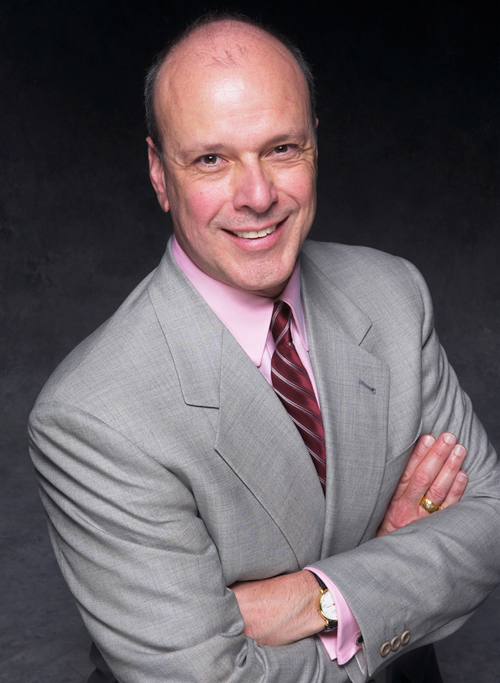Other local doctors say they’ll follow suit if Congress goes through with reductions in reimbursement rate
Some doctors have opted out of the Medicare system because Congress has threatened to cut reimbursement payments.
Bob Hutchison, 58, has HIV and is disabled from injuries he sustained on the job. He said his HIV is under control, but he needs care for his disability. He receives social security and recently qualified for Medicare. But he can’t find a doctor who’ll treat him.
The Trinity Health and Wellness Clinic can treat Hutchison for his HIV. But the facility isn’t equipped to deal with his other conditions unrelated to the virus.
Last year, Congress proposed cutting Medicare payments by almost 30 percent. A current proposal would cut payments by 27.4 percent.
Some doctors say they were already losing money on Medicare patients, but with the additional cuts they won’t be able to pay their staffs.
Trinity referred Hutchison to Parkland hospital to treat his injuries from a broken back.
But Hutchison lives in Rockwall, which has no public hospital and where residents aren’t eligible for free or sliding scale treatment at the Dallas facility.
Hutchison qualified for Medicare because of his disability. That program, known primarily for covering medical costs for people over 65, also covers the disabled.
And unlike patients using private insurance who can go out of network, pay higher rates and bill the provider themselves, Medicare users must use a doctor that accepts the program. An individual cannot choose to pay the doctor in full and then bill the government for reimbursement, even at the lower rate.
Not all Oak Lawn physicians will take new patients on Medicare. What was uniform at their offices this week was a long pause and sigh when asked about the program.
“We’re only taking Medicare from existing patients if they transfer over,” said Rick Porter, a spokesman for Dr. Steven Pounders’ office.
Pounders also has contracted with three Medicare HMOs. He said that as good as one of those plans that his office accepts is, Baylor Hospital doesn’t take it, presenting those patients with another problem.
Porter said an additional problem is that unless a patient with HIV on Medicare has a good Part D prescription plan, it’s hard to switch medications. And if the patient has to change drugs during the year, a plan that covered an existing regimen may not cover the new treatment.
Dr. Jaime Vasquez also continues seeing existing patients who have converted from private insurance to Medicare. New patients on Medicare are accepted on a case-by-case basis.
“We’re keeping a quota,” his office manager said.
She said Vasquez’s office simply can’t afford to take many additional patients with the minimal payment Medicare provides for services — which Congress is threatening to cut further.
According to the Texas Medical Association, almost half of Texas physicians are considering opting out of Medicare altogether.
Although the proposed cut in payments for 2012 hasn’t gone into effect yet as Congress remains deadlocked on this and other issues, the number of doctors accepting new patients on Medicare continues to decline.
Orthopedic surgeon Diane Litke still accepts new patients on Medicare, but she said many of her patients see her for an injury and not for long-term care. But she sided with doctors who have stopped accepting the coverage.
“I think Congress should take a 30 percent pay cut,” she said. “As soon as they cut it [Medicare], I’m going to drop it.”
Part of the problem is the uncertainty. Each year, Congress threatens to cut Medicare payments. Payments usually remain frozen.
This year, the cuts were part of a bill that recently passed extending the payroll tax cut. Before the bill passed, Medicare payment to doctors was stripped from the legislation, and so reimbursement rates remain up in the air.
Although some local doctor’s offices said they aren’t taking new patients on Medicare, some said they are.
At least three local practices with HIV specialties are accepting new Medicare patients: Uptown Physicians; Dr. Nick Bellos, who recently returned his business to Oak Lawn; and Dr. Patrick Daly.
This article appeared in the Dallas Voice print edition February 24, 2012.

















All ‘men’ are created equal, but in this country all ‘men’ are not TREATED equal. Marginalized castaways is not how we become “our brother’s keepers” President Obama. If we are “in this together”, then I suggest your team gets back on the table, stops looking at straw polls, and comes up with a real humane and sustainable solution to providing for EVERYONE! How about returning Walls Street extortion billions and taxing gas company Billions in profits and getting medicine and healthcare to those who need it most! Save a life. Save our country! Save yourself! Make your daughters proud.